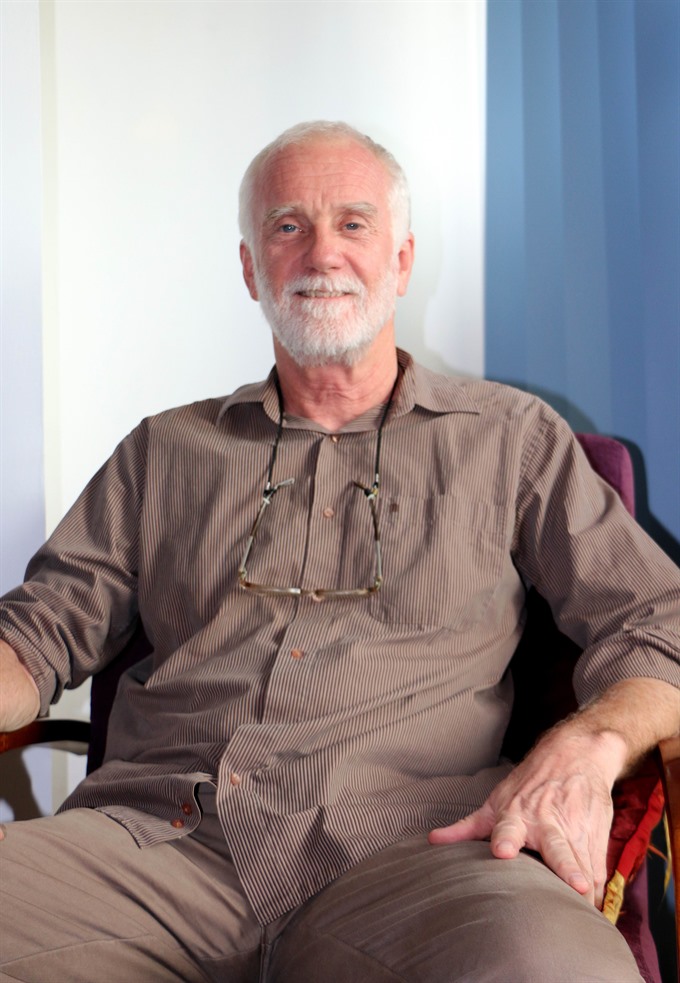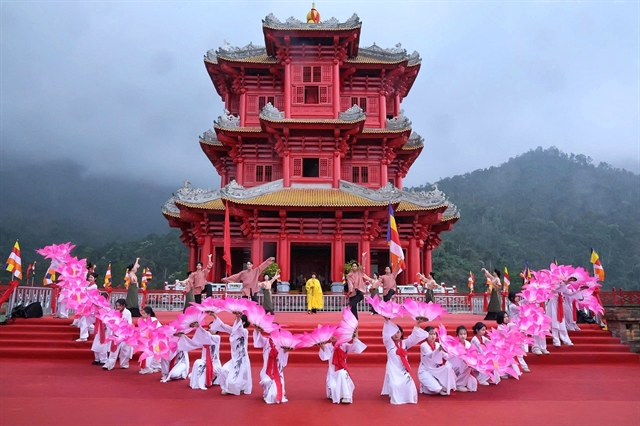 Life & Style
Life & Style

To your health
 |
| American mental health counselor Douglas Holwerda.—VNS Photo Đoàn Tùng |
By Douglas Holwerda*
Five- to eight-year-old children in my neighborhood often play in the streets. Their voices are musical, punctuated with shrieks and laughter. I don’t know what they say to each other. But the exchanges result in someone rushing off with others giving chase. Their imaginations are alive in the ways they move: never walking… full of skips, hops, twirls and spins… running, chasing, ducking and hiding. They can play for hours, without interruption. Their play is as natural as the wind and the sun. They use sticks they find as props and toys and the bike gets traded around. The falling darkness sets the mood for new adventures before they are called in.
Maybe we all played like this as kids: games without rules -- our identities changing with our imaginary dramas. There is spontaneity in this kind of play, a readiness for anything. It is also full of passion, emotions rising and falling, conflicts and resolutions alternating in a matter of minutes.
I believe it is a universal instinct. Children everywhere will play, given the opportunity.
So what happens as we grow up? How is it that we’ve become so far removed from those days and that kind of joyous interaction? When did life become so serious? Is there something we can learn from the way children play?
As a psychotherapist I spend my time with people who are having problems in life. Many people are dealing with depression. Low moods shape the lens through which they see life, which depletes the energy they need to function and enjoy life. I meet with people for whom anxiety is an intrusive invader. Anxiety generates worry, making fear a primary ingredient in many of the thoughts they have. These mood-related disorders preoccupy the mind, stealing the ability to feel pleasure and joy and to think freely or to concentrate. It is difficult for depressed, anxious people to be able to play.
The verb “play” is defined by the Oxford Dictionary as meaning: “to engage in an activity for enjoyment and recreation, rather than for serious or practical purpose”. The origins of the word include ideas such as “to exercise”, “brisk movement” and “leap for joy or dance”.
In his book Free Play, Stephen Nachmanovitch says: “Creative work is play; it is free speculation, using the materials of one’s chosen form. The creative mind plays with the objects it loves. Artists play with color and space. Musicians play with sound and silence. Eros plays with lovers. Gods play with the universe. Children play with anything they can get their hands on.” And while it is done for enjoyment rather than for a serious purpose, we see that culture is shaped by the art, music and dance people create.
Much of our "play" energy these days has been directed into something called “game”. But play is different from game. Play is the free spirit of exploration, doing and being for its own pure joy. Game is an activity defined by a set of rules, such as football, sonnet, symphony, and diplomacy. Play is an attitude, a spirit, a way of doing things; whereas game is a defined activity with rules, a playing field and participants. Computer games are governed by rules and mastery: such games often limit choices to either/or. This is quite different from the idea that our freest play happens when we have nothing to gain or lose.
Don’t get me wrong. There is plenty of creativity involved in the use of structures and limitations. The rules of the games are limits, in the same way as the number of strings on a guitar. Structures and limits channel energy. But play is not concerned with the outcome, the product, the performance or the score. Play is the experience itself, not to be measured, quantified or redone. There is a freedom that comes from not having to try to meet an expectation outside the experience itself. Like children who are fully in the present, play connects us to our bodies, our senses and the immediate environment we are interacting with.
Standing back, we can see the benefits of play. I am pretty sure that if more people played more often we would feel more flexible in our approach to living. We would find more creative solutions to problems. Spontaneity is where we are most directly connected to what is, so that decision making and moving through life seem to have a natural flow. We would become more intuitive and less burdened by over-thinking or fear-generated restrictions. Play is fun. It gives us the experience of positive emotions, as well as avenues to express ourselves.
Is it true that in expressing ourselves we discover ourselves? Is it through our imagination that we discover what is real?
Someone once said, “We don’t sing because we are happy, we are happy because we sing.”
Play is the way we put life into context. Of course we need to be responsible and serious. But we also need to re-learn how to play from children.— Family Medical Practice Hanoi
*Douglas Holwerda is an American mental health counselor working at Family Medical Practice Hanoi. He works with teens, adults and couples to resolve such issues as anger, anxiety (including panic attacks and OCD), depression (including suicidality), relationship and communication problems, expat adjustment, loss and grief, mid-life changes, and meaning of life questions. He also works with those seeking personal growth and help with other mental health concerns. In addition to his clinical work at FMP, Holwerda has taught classes in Psychology and Social Psychology at National University in Hanoi.
For more information or medical advice, please contact Family Medical Practice Hanoi at: hanoi@vietnammedicalpractice.com.




